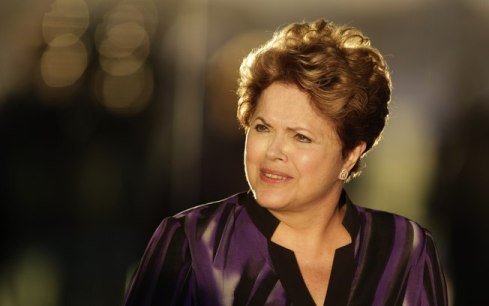
1. Brazilian foreign policy: Game over?
As she prepares for her second term, President Rousseff risks undoing her predecessor’s foreign policy achievements. While Itamaraty was a key element of Brazil’s global strategy over the past ten years, Rousseff’s new right-hand man will seek to keep the Foreign Ministry weak and isolated. Brazil’s retreat is bad news for the future of global affairs.
2. What Would a Marina Presidency Mean for Brazilian Foreign Policy?
Marina Silva argues that Dilma Rousseff did not sufficiently value Brazil’s Foreign Ministry. And indeed, under no other Brazilian leader in recent history has the Foreign Ministry – historically above the political fray – been so secondary. As a result, Brazil’s foreign policy under Rousseff has been far more hesitant and passive than during the presidencies of Cardoso and Lula.
3. Is Brazil abandoning its global ambitions?
The size of its diplomatic service is an often neglected factor when analyzing a country’s capacity to engage internationally. Yet it matters greatly. Smart strategies developed at the Foreign Ministry at home can fail to have the desired impact because there are not enough foreign service officers to implement the new policy. Complex bilateral negotiations can be negatively affected if one side’s negotiators have not been briefed properly due to a lack of diplomatic staff and on-the-ground knowledge on the domestic constraints the other side is facing.
4. Brazil’s top 10 foreign policy challenges in 2014
This list therefore does not claim to be complete (it does not contemplate key topics such as the environment, development aid, non-proliferation, peacekeeping in Haiti, the WTO and the Middle East), but seeks to stimulate the debate about an exciting year ahead. Comments (preferably of the critical sort) are, as usual, most welcome.
5. The Case against Brazil’s Retrenchment
Those who argue that Brazil’s global ambitions are misguided and a waste of resources at a time of domestic economic difficulties should recognize that Brazil’s retreat would damage both its strategic and economic interests. More importantly, it would weaken the coalition of those countries with an active interest in reforming global governance to assure that today’s institutions maintain their legitimacy and effectiveness by adapting to a new balance of power.
6. BRICS undermine Western attempt to isolate Russia
During a meeting yesterday on sidelines of the Nuclear Security Summit in The Hague, the BRICS’ foreign ministers opposed restrictions on the participation of Russian President Vladimir Putin at the G-20 Summit in Australia in November 2014. In their declaration, the BRICS countries expressed “concern” over Australian foreign minister Julie Bishop’s comment that Putin could be barred from attending the G-20 Summit in November. “The custodianship of the G-20 belongs to all member-states equally and no one member-state can unilaterally determine its nature and character,” the BRICS said in a statement.
7. Two days after final at Maracanã, BRICS leaders will meet in Fortaleza
Summits in Brazil, India and South Africa are particularly important because they allow freer, more spontaneous interaction between academics, policy makers and NGO representatives. Summits in China, on the other hand, tend to be staged in difficult-to-access venues and even the track II events between academics and the banquets in China tend to provide little space for frank debates.
8. International Politics in 2014: Ten Predictions
In 2014, four large democracies in the Global South will organize general elections: Brazil, India, Indonesia and South Africa. During election years, policy makers tend to focus more on internal challenges and less on foreign affairs. Neither outgoing leaders nor recent winners are likely to propose important international initiatives. My guess: Indonesia and India will see leadership transitions. Brazil and South Africa will reelect Dilma Rousseff and Jacob Zuma, respectively.
9. Brazilian Foreign Policy: Into the Dark
The current debate about Brazilian foreign policy is an odd one: Rather than exchanging competing ideas of how to best defend Brazil’s national interests abroad, the discussion among foreign policy analysts is marked by an increasingly universal perplexity and condemnation of the President’s remarkable disregard for the Foreign Ministry and foreign policy issues in general. Even those supportive of the recently reelected government privately admit that Brazil’s foreign policy is going through its most difficult moment in many years.
10. Why China will back Russia on Ukraine
In the end, China is unlikely to take a clear stand. In essence, that is a victory for Vladimir Putin, as Beijing will not actively go along with the West. China will, together with Russia, veto any strong resolution against Moscow in the UNSC.
————-
Read also:
Can Itamaraty engage civil society?
Brazil’s enigmatic retreat: The case of the Responsibility while Protecting (RwP)
Photo credit: Eraldo Peres /AP








